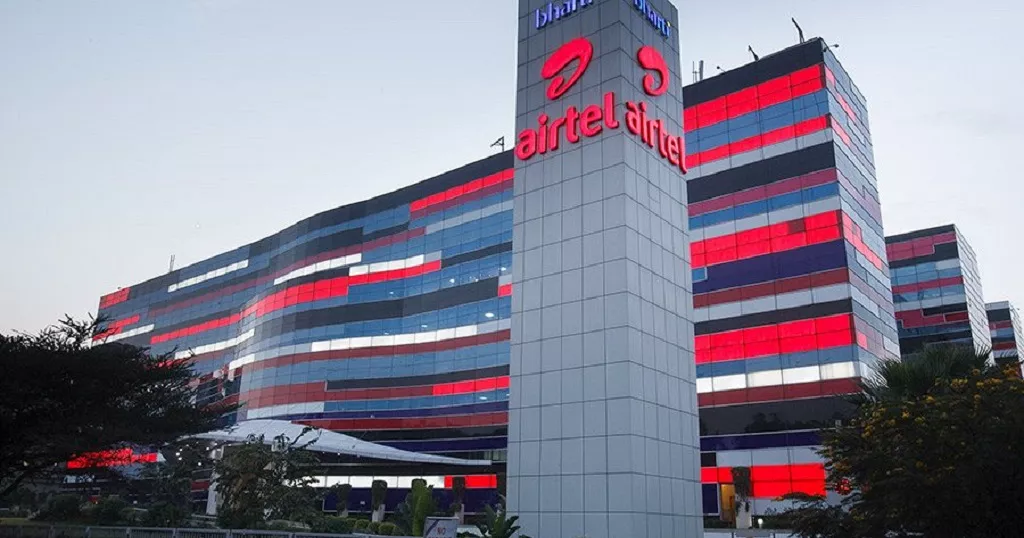- Airtel Africa reported a $1.7 billion loss due to currency devaluations in Nigeria and Malawi for fiscal year 2024.
- Despite a 20.9% growth in service revenues in constant currency, reported currency declines led to a 5.3% decrease in group revenue and a 5.7% drop in EBITDA.
- The CEO highlighted strategies to mitigate currency impacts, focusing on distribution and technology investments and minimizing currency devaluation risks.
Airtel Africa, Nigeria’s second largest telecoms company has reported significant financial setbacks due to currency devaluations in several of its key markets, notably Nigeria and Malawi, resulting in a staggering $1.7 billion in derivative and foreign exchange losses for the fiscal year ending March 31, 2024.
Despite robust growth in service revenues when measured in constant currency, with a reported increase of 20.9% overall and accelerating to 23.1% in the fourth quarter, Airtel’s financials in reported currency tell a different story.
The company witnessed a decline in group revenue by 5.3% to $4,979 million, and a 5.7% drop in EBITDA to $2,428 million. These figures primarily reflect the severe impact of the Nigerian Naira and Malawian Kwacha’s devaluation against the US dollar.
The Nigerian Naira devalued drastically from 461 to 1,303 per US dollar during the year, deeply affecting Airtel’s financial outcomes. The devaluation led to a loss of $1,042 million in reported revenue and a $554 million decrease in EBITDA for the company.
Finance costs soared to $1,703 million, significantly influenced by $1,259 million in losses from derivatives and foreign exchange revaluations, of which $770 million was due to the Naira’s devaluation.
What the company is saying
In his statement, the CEO of Airtel, Olusegun Ogunsanya, highlighted the effectiveness of the company’s “strategic approach” in mitigating the adverse effects of currency fluctuations and driving revenue growth.
“The consistent deployment of our ‘Win with’ strategy supported the acceleration in constant currency revenue growth over the recent quarters which has reduced the impact of currency headwinds faced across most of our markets. This strong revenue performance is a reflection not only of the opportunity that is inherent across our markets, but also the resilience of our affordable offerings despite the inflationary pressure many of our customers have experienced.”
Further elaborating on the company’s operational focus, the CEO noted the critical role of investments in distribution and technology in facilitating growth, alongside a strategic emphasis on financial prudence.
“Facilitating this growth has been, and will remain, fundamental to our performance. The investment in our distribution to catalyse growth, and the technology required to support this growth has been key,” he explained.
Addressing financial strategies, he pointed out efforts to minimize risks associated with currency devaluation, including reducing US dollar debt and maintaining sufficient cash reserves to cover outstanding debts.
“Furthermore, our rigorous approach to de-risking our balance sheet and our capital allocation priorities has materially reduced the risks that the currency devaluation has had on our business,” he affirmed.
Operation highlights
In terms of operational highlights, Airtel reported strong performance in mobile services and mobile money segments. Mobile services revenue grew by 19.4% in constant currency, driven by a 29.2% surge in data revenues and an 11.9% increase in voice revenue.
- The mobile money sector was particularly buoyant, with a 32.8% rise in constant currency revenues, underpinned by substantial growth in East Africa.
- Despite these currency and inflationary headwinds, Airtel managed to maintain a reported EBITDA margin of 48.8%, demonstrating some resilience in its operational efficiency and cost management.
- Mobile services EBITDA grew by 18.8% in constant currency, and mobile money EBITDA margins expanded by 234 basis points, indicating strong underlying operational performance.
- The fiscal year’s end paints a complex financial picture for Airtel. Excluding the exceptional losses due to foreign exchange adjustments, the company would have posted a profit before tax of $744 million. However, including these losses, Airtel faced a pre-tax loss of $63 million and an after-tax loss of $89 million.
Airtel Nigeria Performance
Airtel’s fiscal year 2024 results in Nigeria revealed a sharp divide between operational success and currency challenges.
In constant currency terms, the company reported a robust 25.8% growth in revenues, accelerating to 34.1% in the fourth quarter, driven largely by increased data demand.
However, the significant depreciation of the Nigerian Naira led to a 29.4% drop in reported revenues, totaling $1,503 million.
- Despite these currency headwinds, Airtel Nigeria maintained strong operational performance. Revenue growth was supported by a 5.3% increase in its customer base and a 19.0% rise in Average Revenue Per User (ARPU).
- The enforcement of Know Your Customer (KYC) regulations, however, impacted customer base expansion.
- Voice revenues in constant currency increased by 19.6%, benefiting from both an expanded customer base and a 13.2% rise in voice ARPU.
- Data revenues were even more dynamic, growing by 32.1% in constant currency, thanks to a 14.9% increase in data customers and a 14.0% rise in data ARPU. Average data usage per customer also grew significantly, reaching 6.3 GB per month from 5 GB, indicating heightened digital engagement among Nigerians.
However, Airtel Nigeria’s reported currency EBITDA fell by 26.3% to $811 million, whereas constant currency EBITDA rose by 30.9%, improving the EBITDA margin by 226 basis points to 54.0%.
- This improvement was primarily due to revenue growth and cost efficiencies, though a one-time operational expenditure benefit from VAT refunds on tower rentals also played a role. Without this benefit, the EBITDA margin increase would have been 180 basis points.
- The fourth quarter exposed operational pressures with the EBITDA margin at 52.2%, slightly lower than the annual figure, primarily due to escalating diesel costs which remain a volatile factor for future margins.
- Operating free cash flow was robust at $559 million, up 68.6% in constant currency, largely supported by strong EBITDA performance and reduced capital expenditures.
Looking ahead, Airtel anticipates that the ongoing currency volatility will continue to impact its financial results.
